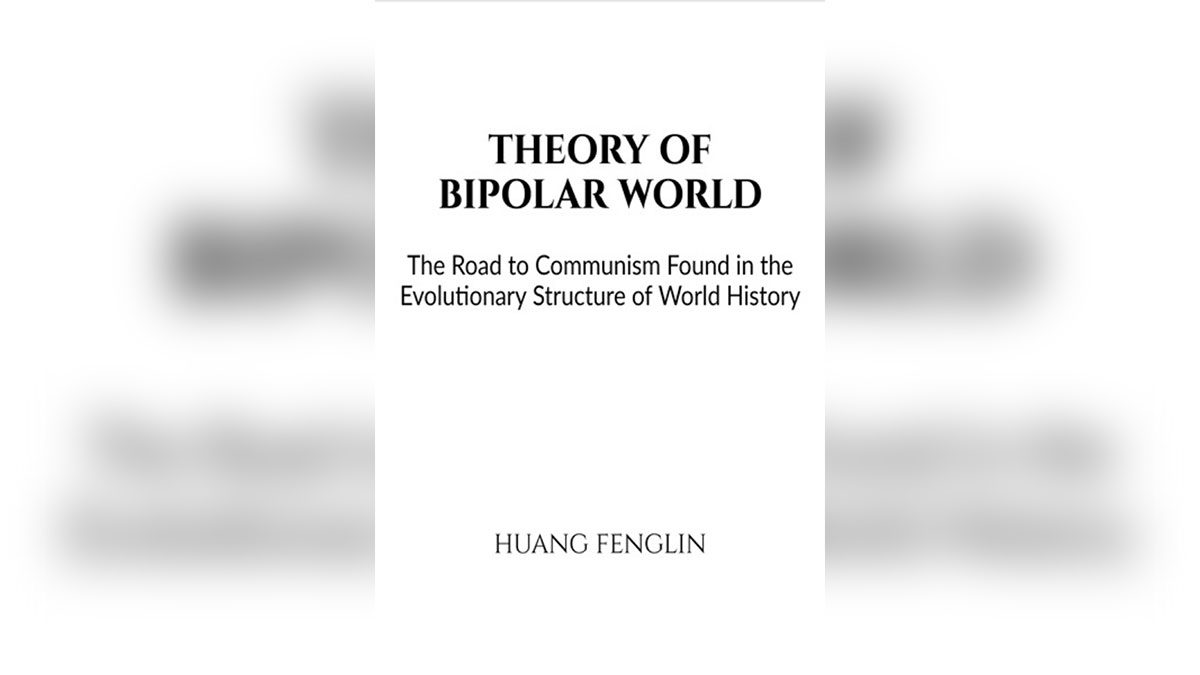Huang Fenglin, Theory of Bipolar World – The Road to Communism Found in the Evolutionary Structure of World History (translation and revision of a text published in Chinese in 2014 by the Central Compilation and Translation Press)
This is undeniably a difficult book, but it may be an important one. It was drawn to my attention by the author himself. Huang Fenglin is a graduate of the Chinese Academy of Social Sciences with a professional background in chemistry, law, and ‘Marxism’ who currently works in the Office of the Cyberspace Affairs Commission of the Tibet Autonomous Region of the People’s Republic of China. The book can be downloaded as a pdf file from his homepage.
In his book the author presents his attempt to rework ‘Marxism’ in the light of current knowledge and current realities as he sees them. This is certainly a worthwhile exercise. Significant developments have occurred that Marx did not foresee, while events that Marx did foresee have still not occurred. In particular, there is as yet no sign of a transition to communism on a world scale. If Huang has found a new ‘road to communism’ that is surely to be welcomed.
I should explain why I put ‘Marxism’ in quotation marks. There was only one Marx (though some identify an ‘early’ and a ‘late’ Marx). But there have been many Marxisms – schools of thought laying claim to Marx’s legacy. One key distinction is between the ‘official Marxisms’ taught in countries ruled by ‘communist’ parties and ‘unofficial Marxisms’ that have appeared outside official institutions in those countries or in other countries. The official Marxisms have varied in detail over time and between countries, but they have had a strong family resemblance. They have all been divided into subdisciplines such as ‘dialectical materialism,’ ‘historical materialism,’ and ‘scientific socialism’; and they have all incorporated ideas from Lenin as well as Marx (‘Marxism-Leninism’), in some instances with a more recent leader of the country concerned tacked on (as in ‘Marxism-Leninism-Mao Zedong Thought’). Unofficial Marxisms, by contrast, have been much less standardized. Some unofficial Marxisms, that of our World Socialist Movement among them, reject Leninism (Bolshevism) as a distortion of Marxism and deny that the countries ruled by ‘communist’ parties are or have been socialist.
The starting point of the book under review is the official Marxism learned by the author in post-Mao China. A full understanding of the text requires prior knowledge of that specific Marxism and is therefore within the reach of only a few specialists. I am not one of them. That is one reason why I shall not even try to assess Huang’s ideas about the philosophy of nature, for instance.
The author’s basic criticism of classical Marxism is that it focuses solely on change over time within a given society, ignoring the geographical dimension of interaction among contemporaneous societies in space. This criticism is not wholly baseless. He develops a theory of spatial interaction among Eurasian societies, in which the main elements are China (the East), Europe (the West), and – in between the two – the nomads of Inner Asia and the world of Islam. The ‘power core’ within this system was initially China, moved west to Europe, and has now moved back east to China. Then he presents a quite detailed and well-founded theory of the current international system as a ‘bipolar world order’ with Europe and America as the western pole, China as the eastern pole, intermediate subjects aligned with one pole or the other (Japan, Russia, Brazil, etc.), and a ‘fracture zone.’
In his reworking of Marxist concepts, however, Huang perhaps goes too far. Instead of supplementing such concepts as ‘productive forces’ and ‘relations of production,’ as may have been his original intention, he dissolves them in new formulations that are indeed more comprehensive but also vaguer. The class struggle almost disappears from sight, while the slogan ‘Workers of the world unite!’ is transformed into ‘State-owned enterprises all over the world, unite!’ For it is his contention that expanding cooperation between the state-owned enterprises of China and other countries, as in the context of China’s Belt and Road Initiative, will create the material basis for transition to world communism by the end of the 22nd century. For this purpose, of course, it would be necessary to stop closing down state-owned enterprises and possibly establish a few new ones.
The book under review might usefully be viewed as a proposal for resolving a dilemma that faces the leadership of the PRC. As the process of ‘reform’ has increasingly turned China into a market economy, exacerbated social inequality, and fostered individualistic attitudes, it has become more and more difficult to reconcile these shifts with the ‘Marxist’ ideology inherited from the Maoist period. What justification is there for continuing to call China a socialist country and its ruling structure a communist party? What is the world-historical mission of ‘socialist China’ – or does it no longer have one? On the one hand, the regime does not enhance its legitimacy by retaining a ‘Marxist’ ideology that is clearly of declining relevance to the real world. On the other hand, openly abandoning that ideology would mean losing the remaining elements of continuity with the past. Such a step would be difficult to explain and might even provoke unrest. A thorough revision of the ideology, perhaps along the lines suggested by Huang, may therefore provide an appealing third option.



